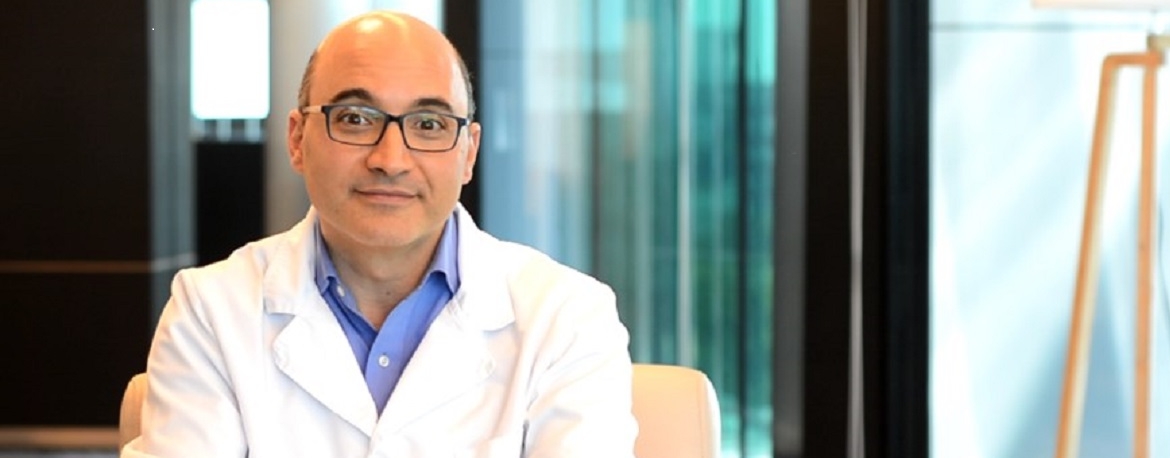MEDIO DE PUBLICACIÓN
Diario EL PAIS
El Hospital
Prensa
La salud sexual como una fuente de bienestar

La salud y el bienestar sexual están directamente relacionados con la calidad de vida, asegura experto del Británico
La salud y el bienestar sexual están directamente relacionados con la calidad de vida, por lo que es muy importante consultar tempranamente y obtener un tratamiento oportuno, sostuvo Santiago Cedrés, médico sexólogo referente de la Policlínica de sexología del Hospital Británico, desde donde lidera la realización de talleres de prevención de disfunciones y promoción de la salud sexual. Cedrés explicó que la sexología Médica tiene por objeto la educación, prevención y rehabilitación de las disfunciones sexuales, así como la promoción de la salud sexual.
“Hija de la psicología”, originalmente todo lo relacionado con la sexualidad “se psicologizaba”, pero en la actualidad existen “protocolos claros de estudio, fármacos y terapias de abordaje, propios de la sexología”, entendida como una especialidad médica que apunta a la calidad de vida.
Para el especialista, “el bienestar físico, afectivo y social, está directamente relacionado con la salud sexual”, y quien tiene una vida sexual satisfactoria es menos propenso a deprimirse, maneja mejor la ansiedad y el stress y duerme mejor, entre otros beneficios.
El avance de la Sexología Médica permite “estudiar y conocer las causas” de las disfunciones sexuales, para así encarar su abordaje tratamiento. En este sentido, Cedrés subrayó la pertinencia del trabajo multidisciplinario, involucrando médicos endocrinólogos, psiquiatras, ginecólogos y urólogos, entre otros y según cada caso, pueden deberse a múltiples causas.
Destacó la importancia de dejar de lado los mitos y falsas creencias, consultar oportunamente y obtener el abordaje más adecuado, “desde la persona o desde la pareja”. “Las disfunciones sexuales son muy variadas” y pueden darse en la etapa del deseo, en la de la excitación o en la del orgasmo.
El “deseo sexual disminuido, la pérdida o deterioro del deseo sexual, es la consulta más frecuente en las mujeres”, mientras que en los varones menores de 40 años lo es “por lejos” la eyaculación precoz y “después de los 40 la disfunción eréctil, en Uruguay y en el mundo”.
Cedrés recordó que en la adultez aparecen las enfermedades crónicas, las dificultades para conciliar el sueño, la depresión y en ocasiones la toma de medicamentos “con el consiguiente impacto psico-emocional sobre la persona”, lo que puede constituirse en “la principal causa de pérdida de deseo sexual”. A ello se suma, en el caso de las mujeres, la menopausia.
“La consulta médica es muy importante para el tratamiento oportuno y evitar que la ansiedad vaya creciendo y aparezca el rechazo”, advirtió. “La sexualidad es una fuente de encuentro y puede transformarse en un desencuentro”, graficó. En ese marco, señaló que “en una relación a largo plazo es de suma importancia la comunicación. La función de la comunicación es realzar el encuentro de la pareja”.
En el caso de los varones, apuntó a las “repercusiones psicoemocionales”, como “la pérdida de autoestima y de confianza en las relaciones sexuales”. Aseveró que la “intelectualización” es una de las mayores causas de fracaso, ya que “la sexualidad no hay que pensarla, hay que sentirla. La plenitud sexual es enemiga de la presión, la sexualidad es el comportamiento humano más complejo, por lo que trabajar en la vivencia es clave”.
